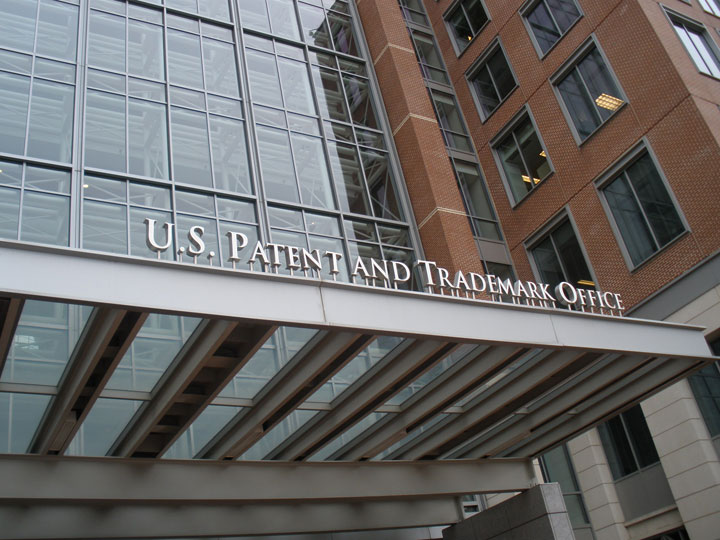PTO's Iancu: AI Algorithms Generally Patentable

The smarter way to stay on top of broadcasting and cable industry. Sign up below
You are now subscribed
Your newsletter sign-up was successful
Andrei Iancu, director of the U.S. Patent and Trademark Office (USPTO), says that the courts have strayed on the issue of patent eligibility, including signaling he thought algorithms using artificial intelligence were patentable as a general proposition.
That came in a USPTO oversight hearing Wednesday (April 18) before a generally supportive Senate Judiciary Committee panel.
Both Iancu and the legislators were in agreement that more clarity was needed in the area of computer-related patents, and that PTO needed to provide more precedential opinions when issuing patents so it was not trying to reinvent the wheel each time and to better guide courts.
At issue are Supreme Court decisions that Iancu said had injected "a degree of uncertainty" into that area of law. He said PTO would come up with guidelines to help better define what is patent-eligible, but that it was a challenge that needed to be addressed by Congress and stakeholders as well.
He said he would be willing to work with Congress on legislative updates to the language of Sec. 101 of the U.S. code ("Whoever invents or discovers any new and useful process, machine, manufacture, or composition of matter, or any new and useful improvement thereof, may obtain a patent therefor, subject to the conditions and requirements of this title."). Iancu pointed out it was essentially the same language from 1793.
Sen. Kamala Harris drilled down on those Supreme Court patent eligibility decisions -- Aliceand Mayo, among them -- in which the court suggested algorithms used in artificial intelligence (AI) might be patentable. She suggested that such a finding would provide incentive for inventors to pursue the kind of AI applications being used in important medical research.
Iancu said it was a key issue, and went beyond AI to Big Data. "We have to make sure our policies, including IP, are highly focused on incentivizing that type of innovation," he said.
The smarter way to stay on top of broadcasting and cable industry. Sign up below
Harris pointed out that China was providing patent protections to algorithms. Iancu said the Supreme Court decisions were causing significant confusion.
Iancu said that generally speaking, algorithms were human made and the result of human ingenuity rather than the mathematical representations of the discoveries of laws of nature -- E=MC2 for example -- which were not patentable.
Algorithms are not set from time immemorial or "absolutes," he said. "They depend on human choices, which he said differs from E=MC2 or the Pythagorean theorem, or from a "pattern" being discovered in nature.
Iancu said one of is priorities was for Congress to pass legislation, the Big Data for IP Act, renewing the USPTO's fee authority, which is scheduled to expire in September. He said USPTO had been "cautiously" raising user fees to cover its costs. He said that those fees were only being used to further the agency's work. Sen Orrin Hatch (R-Utah) and others have concerns that PTO fees were being "siphoned off for other purposes."
Iancu said he would work with Congress and the Commerce Department to insure the fees were only being used for PTO business.
During the wide-ranging hearing, Iancu was asked by Sen. Mazie Hirono (D-Hawaii) about a recent Yale study that found that women were receiving fewer patents than men and had fewer patents maintained.
He said that at first blush, he had some questions about the study, but that it raised important concerns, and USPTO was looking carefully at it.
Hirono said she understood that he wanted to make sure the study was accurate, though the signaled she thought it was, but asked what he would do if he concluded it was accurate. Iancu said the PTO would take appropriate action, including potentially using just initials for patent applicants to avoid conscious or unconscious bias, as Sen. Hirono had suggested.
Sen. Patrick Leahy (D-Vt.) brought up the issue internet accountability -- USPTO sits on the Commerce Department's internet policy committee -- citing legislation passed last month to make websites liable for knowingly abetting human trafficking, and last week's hearings with Facebook CEO Mark Zuckerberg about preventing foreign actors from weaponizing web platforms to interfere with elections here or abroad.
Leahy said there was a growing recognition on both sides of the aisle that companies bear "some responsibility" to prevent their platforms from "being taken over by blatantly illegal conduct."
Contributing editor John Eggerton has been an editor and/or writer on media regulation, legislation and policy for over four decades, including covering the FCC, FTC, Congress, the major media trade associations, and the federal courts. In addition to Multichannel News and Broadcasting + Cable, his work has appeared in Radio World, TV Technology, TV Fax, This Week in Consumer Electronics, Variety and the Encyclopedia Britannica.

